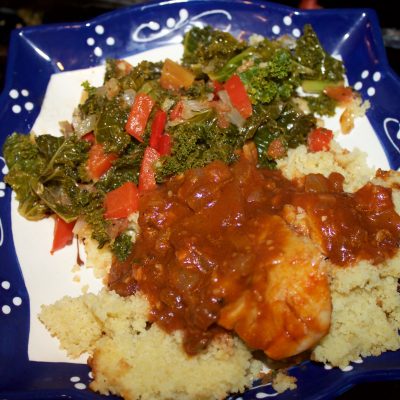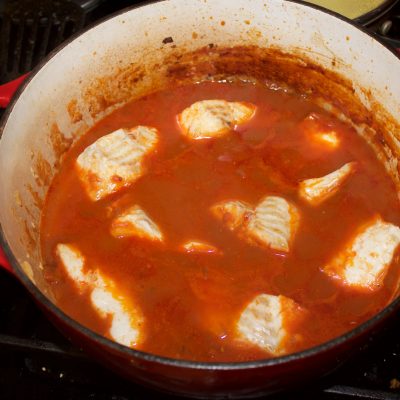


Hraimeh (sometimes spelled Chraimeh) originated among Jewish immigrants who came to Libya in the late 19th century. Hraimeh means “hot,” and this fish is cooked in a spicy tomato sauce reminiscent of harissa. This is often served as the first course of the Sabbath meal, or may also be served at Seder.
Libyan cuisine shares much in common with other North African countries. Couscous is part of many meals. Homes are very private; they often have no outside windows at ground level and guests are only invited into certain parts of the house. The family eats together unless there are guests, in which case men and women eat separately. Before the main meal, water is passed around for hand washing. Everyone eats from a shared bowl using only their right hand – it is rude to use the left hand.
Land is not well-suited for farming – only 1% of the land is used to grow food. In cities, people buy food at the local souq, or market. In Tripoli in particular, the food is heavily influenced by Italian cuisine, and pasta is common. Southern cuisine is more traditionally Arab or Berber.
Recipe Source: Encyclopedia of Jewish Food
|
1
Done
|
Heat oil in a large dutch oven. Add onion and garlic and cook for 6-8 minutes, stirring a few times to ensure it doesn't burn. Add next five ingredients (through black pepper) and cook an additional 2 minutes, until fragrant. |
|
2
Done
|
Stir in tomato paste and lemon juice and cook for an additional two minutes. Add the water and bring to a boil. Reduce heat to medium-low and simmer for 10 minutes. |
|
3
Done
|
Carefully place the fish filets in the sauce and bring to a low boil. Cook for 10 minutes, or until cooked through. Serve fish and sauce warm over couscous. |